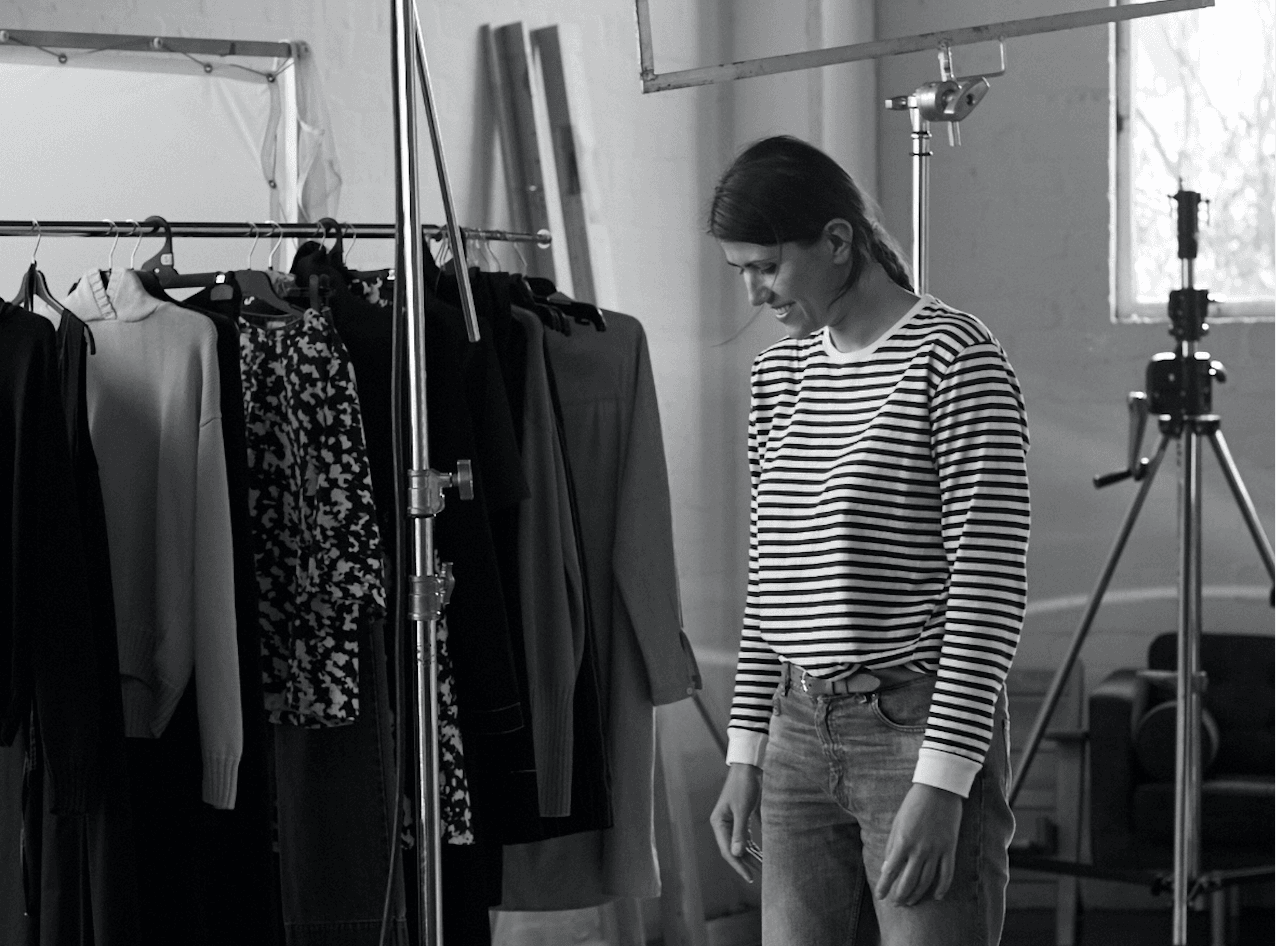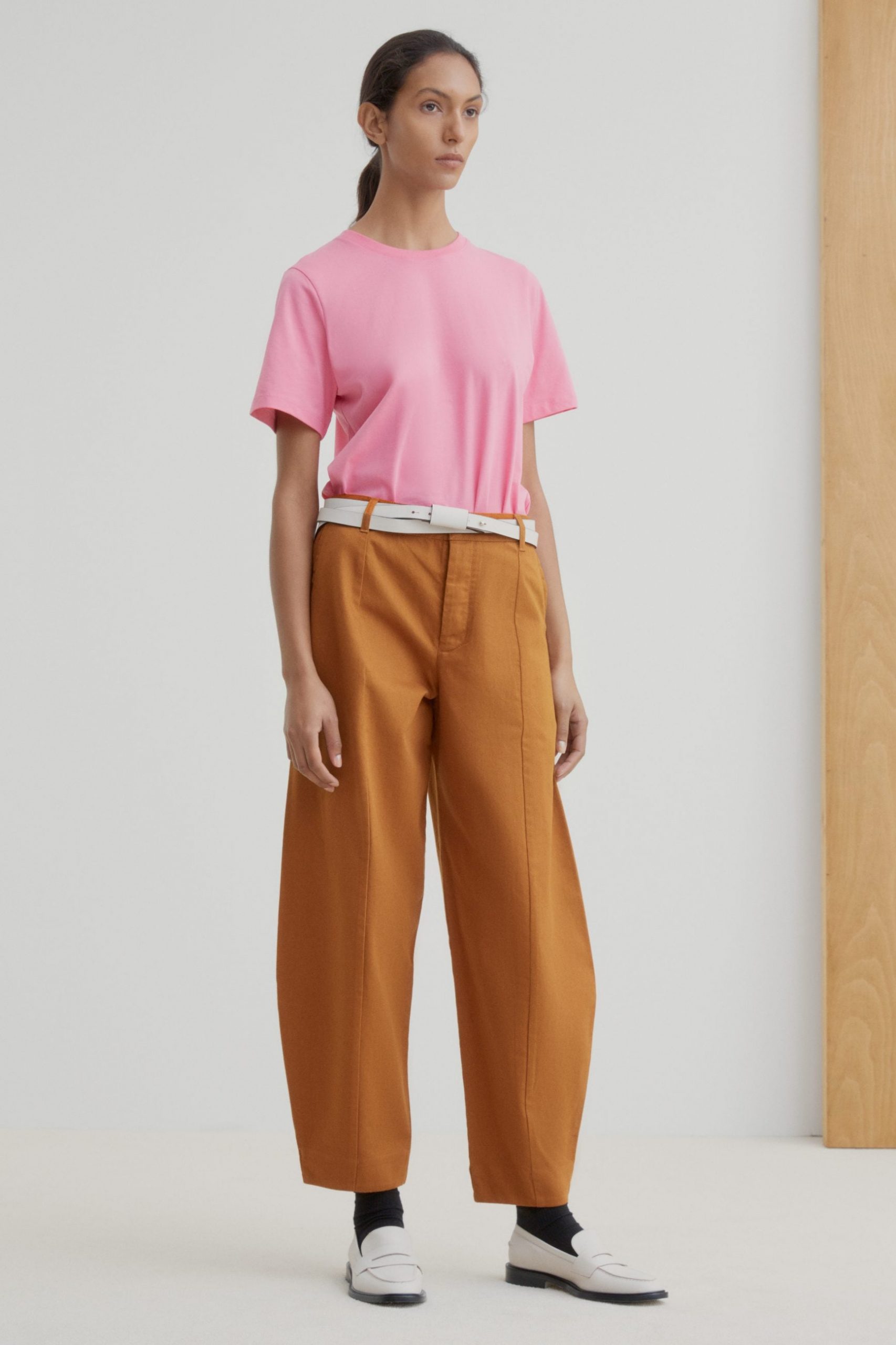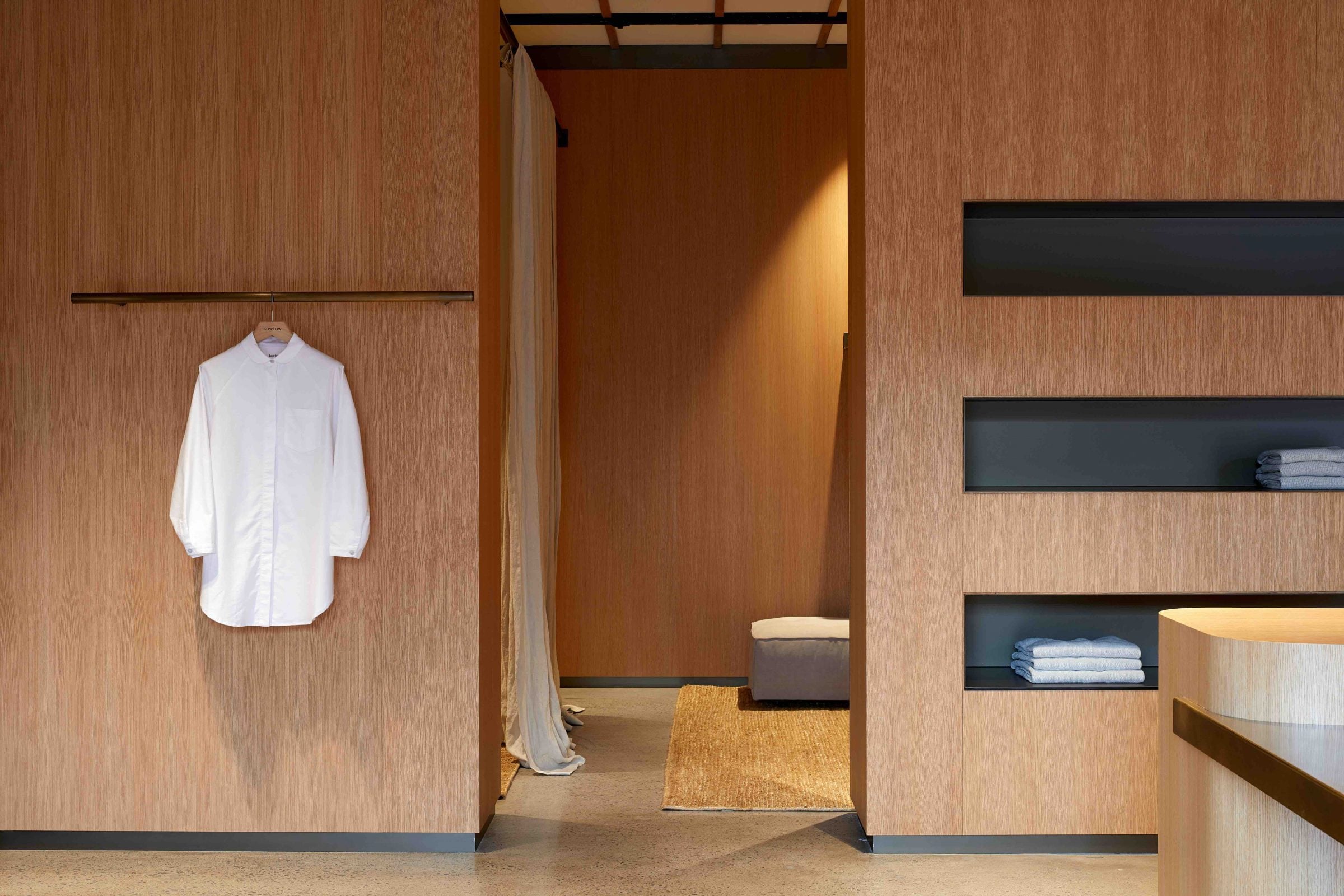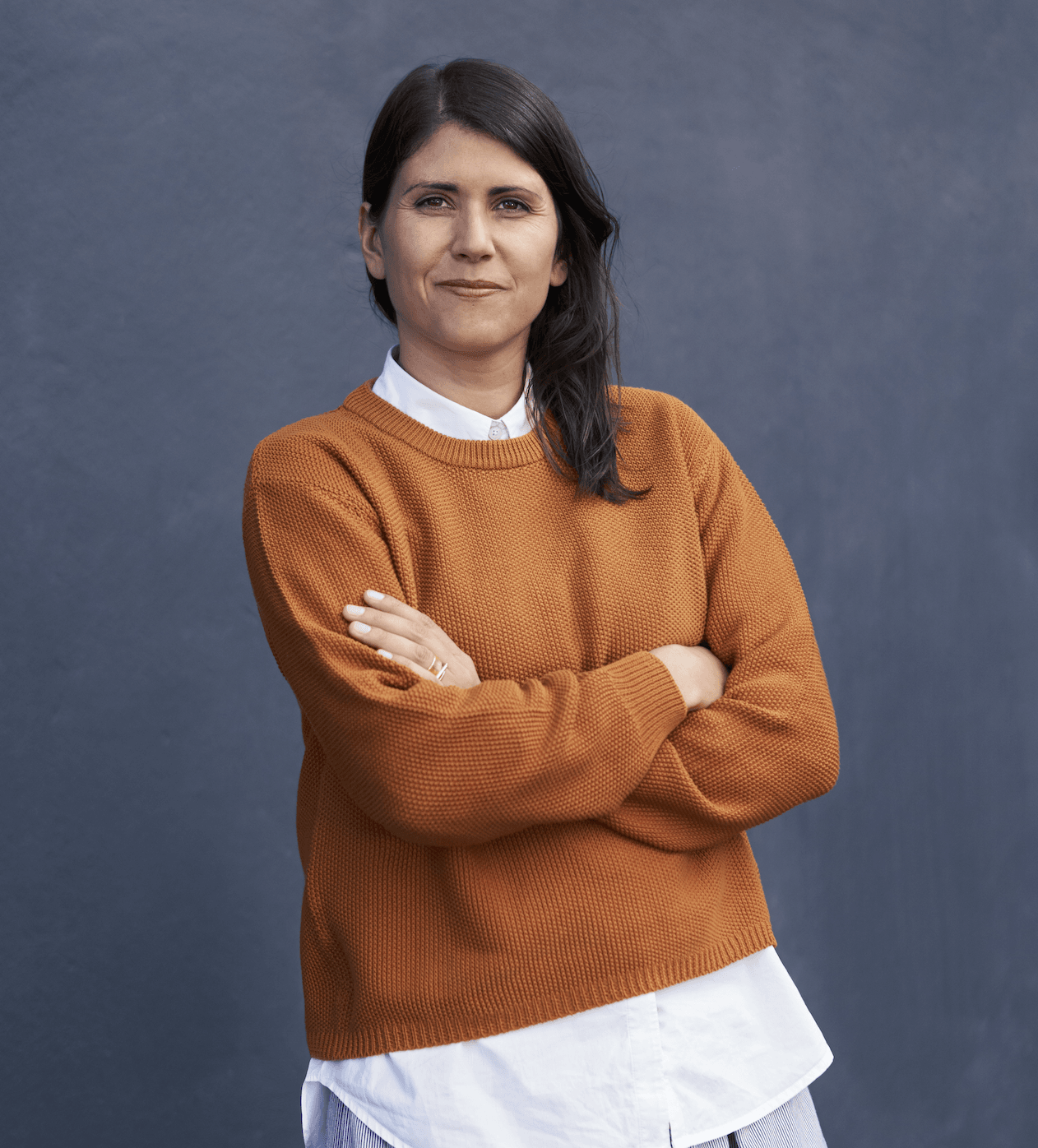
Reading Time: 9 Minutes
Thank you, we’re so happy to finally be in Auckland. I always knew I wanted to do something that would preserve the environment and respect people, but I didn’t know how to express it. It was actually a friend who suggested fair trade certified and organic cotton clothing and it just made perfect sense to me. As a human, you have three basic needs: food, shelter and clothing. We can live off the land and grow organic food, and we build with natural materials, so what was stopping us from achieving the same for what we put on our bodies? The more I looked into it, the more I knew I had to do something.
I have always loved fashion, I started sewing my own clothing in my early teens with friends and my mum. I loved that I could wear something original to school. I always loved design and feel fashion just falls under the umbrella. I never studied fashion design, I had strict Polish parents who didn’t value the arts as a legitimate career. Fast forward 13 years and I have definitely proved them wrong, however the commerce degree that I did graduate with has come in handy.

For us, it begins with using organic, natural and regenerated fibres. We strongly believe we are responsible for what we produce and that it doesn’t end up as waste. Because we design all our fabrics from farmer level our production timelines are very lengthy. Our collections take 18 months from design to delivery. This is the basis for our values, to ensure worker’s rights and environmental protection. All our fabrics are 100% unique to us as we design from the yarn. We determine the weave, weight, stitch, colour and design all our prints in-house for every fabric. We take an holistic approach to our sustainability. We have never used zips, simply because we haven’t found a sustainable and ethical option we’re happy with. Our buttons are made in Italy from recycled hemp and our tacks and sliders used on our denim are nickel-free and made in Germany. We offer a free repair program to extend the life of our garments, and offer a take-back program to reduce the number of garments going to landfill. We sea-freight our stock and distribute it without their corn-starch protective bags, so we can ensure they’re being responsibly composted in Auckland. Even our Kowtow stores are made using only natural, sustainable, and locally sourced materials.
I feel the limitations with our strict ethos of how we do business keeps us innovative. We embrace restrictions and work very hard to come up with alternatives. We only use materials and trims that are responsibly sourced, which means our garments have a very strong minimal identity - we don’t compromise the design, and work towards finding sustainable solutions from buttons to swing tags. We believe the simplicity of our clothing made from natural and regenerated materials is the first step towards circularity.
It is correctly pronounced “Cow-Tau” and it is a traditional Chinese word that represents the custom of deep respect, shown by kneeling and bowing so low that your forehead touches the ground. For me, it resonated with how I wanted to respect the values of the business. I also pronounce the word “Koe-To”. It’s no disrespect to the word, it’s just my native language is Polish, so when I first read it, I mispronounced it in my head and it’s stuck ever since.
Preserving the planet and respecting people.
I think New Zealand is a lot more progressive. People have always been very understanding of what we set out to achieve. When I started the label 13 years ago, ethically sourced and sustainable fashion wasn’t mainstream. As the conversation has come to the forefront, everyone is jumping on board. But the most important thing to us remains the same: to protect the environment and respect the people who make our clothes.
We’re an art driven label, so we are always looking at the work of artists. For the Winter collection we’ve drawn upon the works of Kitty van der Mijll Dekker, Constantin Brâncuș, Jean Arp and Charles & Ray Eames. We've focused on the essence of everyday objects and the beauty revealed in their abstractions, so you'll see a celebration of playful shapes and colour.
I love the Yoshi Dress in our black honeycomb fair trade organic cotton. I love that this dress embraces volume - the fabric was technically challenging to design but we achieved a firmness which really compliments the volume.
It’s an extension of our Wellington store, in that it explores simplicity and warmth with sustainably sourced materials. But we’ve consciously created a space unique to Auckland to articulate its own meaningful experience.

I am a vegetarian and have a single-use plastic ban, so buy mostly in bulk (luckily you can still buy fruit and vegetables without plastic!). I love big flavours and like to mix Asian with Middle Eastern, and I like lots of sharing plates which helps create an atmosphere that is informal and relaxed.
Don’t sweat the small stuff.
I love all of it, especially the challenges - which in our industry, is daily. Everything I have learnt is on the job -strategy, global sales, human resources, finance, design, production and dispatch all done with a sustainable and ethical foundation. It’s constantly a challenge and yet, still a joy and all of the feelings mixed up into one.
Social media, especially Instagram has been a great tool for us to connect with like-minded people. Personally, I think it’s a bit of a mood board for me, a visual feast.
Living in London has been really beneficial for the business in that is has given me a global perspective, though the time difference can be a bit trying. We usually only have a few hours in New Zealand’s morning (my evening) to catch up on things. I have a really good team and we all share the same vision, so it’s easy for me to trust them.
Functional organic cotton basics you can wear every day.
Mindful. Loves natural fabrics. Ageless.

A roof over my head, water, vegetables, my family and nature.
Greta Thunberg.
I fell in love with the building. As soon as I saw it, I knew that was it.
Sometimes at yoga, sometimes doing a short run with my 5 year old son, sometimes making pancakes for friends, sometimes just doing nothing. Definitely not working.
Exploring our international market. We’ve made some great headway in New Zealand with the opening of our Wellington and Auckland stores, but want to now strengthen our overseas markets. I live in London, which gives me an amazing insight into the European market so want to really leverage off that. We also now have a studio in London as a creative and presentation space. In February 2020 we are super excited to be sold at Galeries Lafayette in Paris.
Tags: